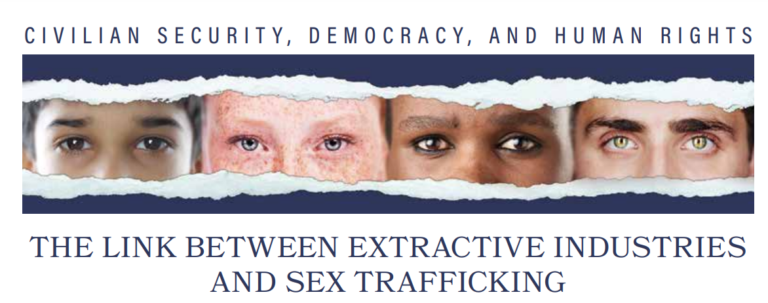Extractive industries involve the removal of non-renewable raw materials such as oil, gas, metals, and minerals from the earth. Although communities can benefit from such industries by using these natural resources for sustainable development, their extraction has also “triggered violent conflicts, degraded the environment, worsened gender and other inequalities, displaced communities, and undermined democratic governance,” according to the UN Development Program. Furthermore, mining, drilling, and quarrying activities often occur in relatively remote areas with minimal infrastructure and limited rule of law, leading to the development of makeshift communities,such as mining “boom towns,” that are vulnerable to crime.

